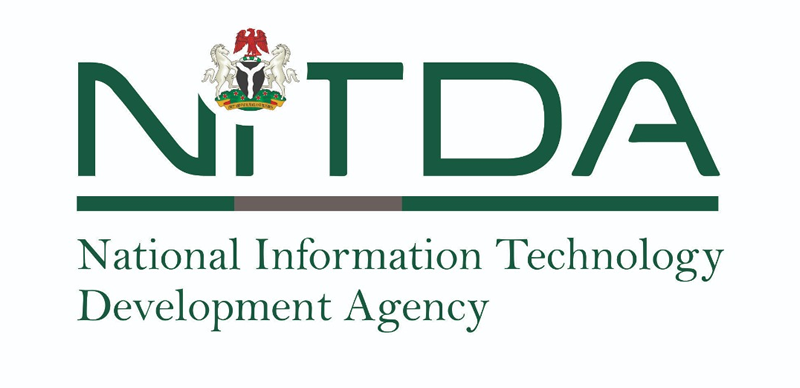Apply for Front Desk Officer Jobs In Kano – 2023

The Maternal Newborn and Child Health (MNCH) initiative is a 5-year aid programme which operates alongside the PRRINN programme that focuses on strengthening routine immunization in four Northern Nigerian States. The MNCH programme aims to address the unacceptable high rates of maternal and newborn morbidity and mortality in selected Northern Nigerian States. This programme is funded by the Norwegian Government in partnership with the UK, Department for International Development (DFID) and is operated by a consortium of three organizations, namely: Health Partners International UK, Save the Children, UK and GRID Consulting Nigeria.
The ideal candidate will carry out a full range secretarial and reception duties. She or he will be actively responsible for all hospitality arrangement and upkeep of the office at all times in order to promote a conducive and effective office environment.
Occasionally, she or he will be required to provide support to the admin/logistics staff in coordinating workshops and meetings that may arise.
A minimum of a Bachelors ‘degree in Secretarial studies or other related discipline with at least 2 years’ experience in a similar role She or he must be proficient in relevant computer applications and have excellent communication and interpersonal.
Job description
Payment: Competitive
Location: Kano Nigeria
Employment type: Full-Time
GRID Consulting Nigeria: is a renowned management consulting firm that has made significant contributions to the development and transformation of Nigeria since its establishment. The company was founded in 1988 by Dr. Tesfaye Adelabu and Dr. Ken Igboanugo, with a vision to provide high-quality consulting services to both public and private sector clients in Nigeria and beyond.
GRID Consulting Nigeria began its journey by offering management consulting services in various sectors, including health, education, governance, and economic development. The firm quickly gained recognition for its professionalism, expertise, and commitment to delivering innovative solutions to complex challenges.
Over the years, GRID Consulting Nigeria has worked closely with government agencies, international development partners, and private sector organizations to design and implement sustainable development programs. The company’s services encompass a wide range of areas, such as strategic planning, policy analysis, capacity building, monitoring and evaluation, and project management.
One of the notable milestones in GRID Consulting Nigeria’s history was its collaboration with the Nigerian government and international partners to implement key healthcare initiatives. The firm played a crucial role in the design and implementation of programs aimed at strengthening Nigeria’s healthcare system, improving access to quality healthcare services, and combating major public health issues.
GRID Consulting Nigeria has also been actively involved in the education sector, working with stakeholders to enhance educational systems and promote quality education. Through its interventions, the company has contributed to the development of policies, curriculum reforms, teacher training, and educational infrastructure improvement.
The firm’s dedication to good governance and economic development has led to collaborations with government agencies and institutions to promote transparency, accountability, and sustainable economic growth. GRID Consulting Nigeria has provided technical assistance, conducted research, and supported the implementation of initiatives aimed at improving governance structures, public financial management, and private sector development.
Today, GRID Consulting Nigeria continues to be a leading consulting firm in Nigeria, renowned for its expertise and commitment to driving positive change. Its contributions to various sectors have significantly impacted Nigeria’s development landscape, making it a trusted partner for organizations seeking innovative solutions and sustainable development strategies.
Save the Children: is an international non-governmental organization (NGO) that was established to address the needs of children affected by war and conflict. It was founded on April 15, 1919, in London, United Kingdom, by Eglantyne Jebb and her sister Dorothy Buxton.
The organization’s origins can be traced back to World War I when Eglantyne Jebb became deeply concerned about the devastating impact of the conflict on children. She believed that children’s rights should be recognized and protected, regardless of nationality or circumstances. Jebb’s passionate advocacy led to the drafting of the “Declaration of the Rights of the Child” in 1923, which later served as the basis for the United Nations Convention on the Rights of the Child.
In its early years, Save the Children focused on providing emergency relief to children affected by war, famine, and natural disasters. During the Spanish Civil War in the late 1930s, the organization worked tirelessly to provide aid and support to children caught in the crossfire. They expanded their efforts during World War II, aiding refugees and establishing homes for children who were orphaned or displaced.
Over time, Save the Children broadened its scope to address various issues affecting children, including education, healthcare, child protection, and nutrition. They emphasized long-term development programs that aimed to improve the well-being of children and their communities. The organization’s work expanded globally, with offices and programs established in numerous countries.
Save the Children has been at the forefront of numerous humanitarian responses, including the Ethiopian famine in the 1980s, the Balkans conflict in the 1990s, the Indian Ocean tsunami in 2004, and the Syrian refugee crisis in recent years. They have also been actively involved in advocating for children’s rights at national and international levels, lobbying governments and working to influence policies.
In addition to their emergency response and development work, Save the Children has consistently championed the rights of children, raising awareness about issues such as child labor, child marriage, and access to quality education. They have played a crucial role in shaping the global agenda for child rights and have been instrumental in advancing child-focused policies and initiatives.
Today, Save the Children is one of the largest and most influential child-focused organizations worldwide, working in over 100 countries. Their mission remains centered on ensuring that every child has the opportunity to survive, thrive, learn, and be protected. Through their programs, advocacy efforts, and collaborations with governments and communities, Save the Children continues to make a significant impact on the lives of children around the world.
Health Partners International UK (HPI) is a non-profit organization that has been dedicated to improving healthcare systems and services in low- and middle-income countries since its establishment in 1995. HPI works in collaboration with governments, international organizations, and local communities to address health challenges and promote sustainable development.
HPI was founded with the aim of addressing the disparities in healthcare access and outcomes faced by many communities around the world. The organization recognized the need for comprehensive and integrated approaches to strengthen health systems and improve the overall health of populations.
In its early years, HPI focused on supporting health sector reforms and capacity building initiatives in several countries, including Rwanda, Mozambique, and Malawi. The organization worked closely with local partners to develop and implement strategies to enhance healthcare delivery, strengthen health workforce capabilities, and improve health information systems.
Over time, HPI expanded its areas of expertise to encompass a wide range of health issues. The organization began implementing projects in areas such as maternal and child health, sexual and reproductive health, HIV/AIDS prevention and treatment, malaria control, and health system strengthening.
HPI’s approach emphasizes partnerships, participatory methodologies, and a rights-based approach to healthcare. The organization believes in the importance of engaging with local communities, civil society organizations, and governments to ensure sustainable and locally owned solutions. HPI also prioritizes the integration of gender and social inclusion considerations in its programs, recognizing the impact of social determinants on health outcomes.
Throughout its history, HPI has collaborated with numerous donors, including governments, multilateral organizations, and philanthropic foundations. These partnerships have enabled the organization to implement impactful projects and contribute to global health goals.
Today, HPI continues to work towards achieving health equity and strengthening health systems in low- and middle-income countries. The organization remains committed to empowering communities, advocating for policy change, and fostering innovation to address the evolving health challenges faced by vulnerable populations.












